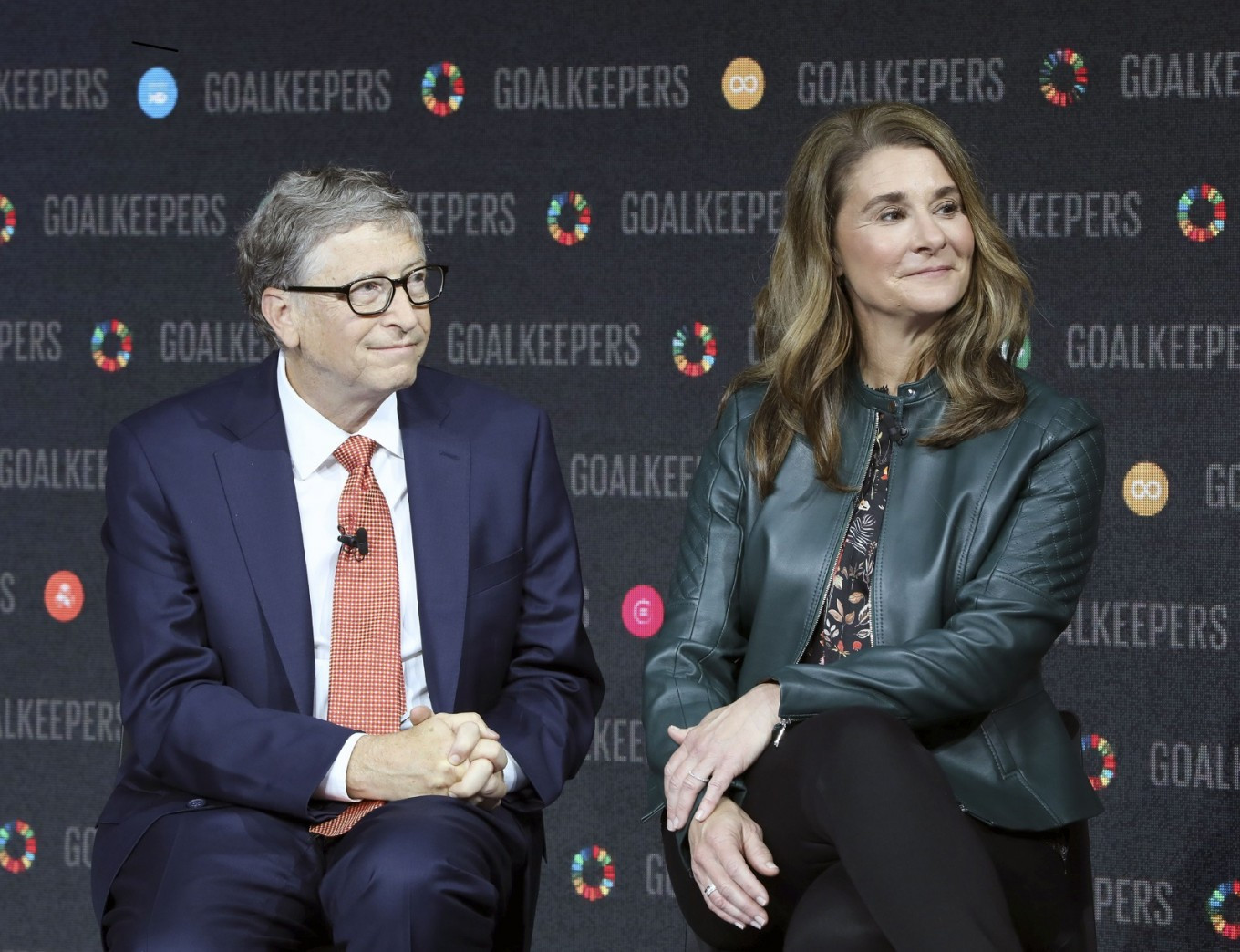News
Gates Foundation's vaccine trial in RI sparks concern
Tenggara Strategics May 23, 2025 In this file photo taken on Sep. 26, 2018 Bill Gates and his wife Melinda Gates introduce the Goalkeepers event at the Lincoln Center in New York.Earlier this month the Bill and Melinda Gates Foundation committed up to $100 million for the global response to the outbreak (AFP/Ludovic Marin) (AFP/Ludovic Marin)
In this file photo taken on Sep. 26, 2018 Bill Gates and his wife Melinda Gates introduce the Goalkeepers event at the Lincoln Center in New York.Earlier this month the Bill and Melinda Gates Foundation committed up to $100 million for the global response to the outbreak (AFP/Ludovic Marin) (AFP/Ludovic Marin)
The Bill & Melinda Gates Foundation has renewed its long-standing partnership with Indonesia following a high-profile visit by Bill Gates to Jakarta in early May. While the Foundation emphasized its commitment to improving public health and healthcare access in the country, one initiative in particular—trials for a novel tuberculosis (TB) vaccine—has attracted growing public skepticism and concern.
Since first establishing its presence in Indonesia in 2009, the Gates Foundation has played a key role in supporting a range of national development priorities. Known globally for its focus on healthcare, the Foundation has also provided support in fields such as agriculture, education, and technological development. Over the past 15 years, it has committed more than US$300 million in grants across these sectors in Indonesia alone.
In the most recent phase of funding, the Foundation announced a total of US$159 million (Rp 2.5 trillion) in grants. The lion’s share of this new funding—around US$119—will be allocated to the health sector. These funds will support programs aimed at boosting immunization coverage, strengthening healthcare systems, and expanding access to essential medical services. An additional US$5 million each will go toward agriculture and technology initiatives, while the remaining US$28 million is earmarked for a range of social programs that cut across multiple sectors.
During a meeting at the Merdeka Palace, President Prabowo Subianto and Bill Gates agreed to conduct trials for a new TB vaccine in Indonesia, as part of broader efforts to curb the spread of communicable diseases such as polio, measles, and malaria. However, the announcement quickly drew criticism on social media, with many Indonesians expressing unease about the safety of the trial vaccine, citing concerns that it has not completed clinical testing.
Health Minister Budi Gunadi Sadikin responded by assuring the public that the vaccine is backed by scientific research and emphasized that similar vaccination programs have been carried out in the past, such as during the COVID-19 pandemic. Still, health experts have urged the government to establish clear regulations and a robust monitoring system to detect potential side effects and ensure that the clinical trials are conducted transparently and ethically.
The urgency of addressing TB in Indonesia is underscored by data from the Global TB Report 2024, which places the country as having the second highest TB burden in the world after India. An estimated 1 million Indonesians contract TB each year, with approximately 1.09 million cases going and around 125,000 deaths annually.
In addition to the health agenda, Gates also praised Indonesia’s progress in improving food security. He highlighted the country's efforts to enhance agricultural resilience, particularly through systems designed to withstand climate change and global supply chain disruptions. He also praised the government’s ongoing efforts in tackling malnutrition and expanding access to basic healthcare services, which he described as essential to building long-term societal resilience.
A widely publicized part of Gates’s itinerary was his joint visit with President Prabowo at a school to observe the implementation of the MBG program—a national initiative that aims to provide schoolchildren with access to free, nutritious meals. The visit was seen as a symbolic endorsement of the program, which has become one of Prabowo’s most prominent policy priorities. However, despite the strong public showing of interest, it remains uncertain whether the Gates Foundation has any intention of committing direct financial support or technical assistance to MBG at this stage.
The role of artificial intelligence also surfaced during the meetings. Gates noted the remarkable pace at which AI technologies have advanced, particularly over the past six months. While some interpreted his remarks as an indication of direct philanthropic interest in AI development, Gates clarified that his interest remains largely focused on the potential of AI as a tool—specifically, how it can be harnessed to enhance healthcare delivery, accelerate medical research, and improve public health outcomes in low- and middle-income countries.
Although Gates stepped down from his role at Microsoft more than a decade ago, his legacy in global technology innovation continues to be closely associated with digital transformation trends. Microsoft’s collaboration with Indonesia in the field of AI has been accelerating recently, with one prominent example being the Indonesia Central Region, Microsoft’s dedicated cloud region launched as part of its long-term commitment to Indonesian digital infrastructure.

